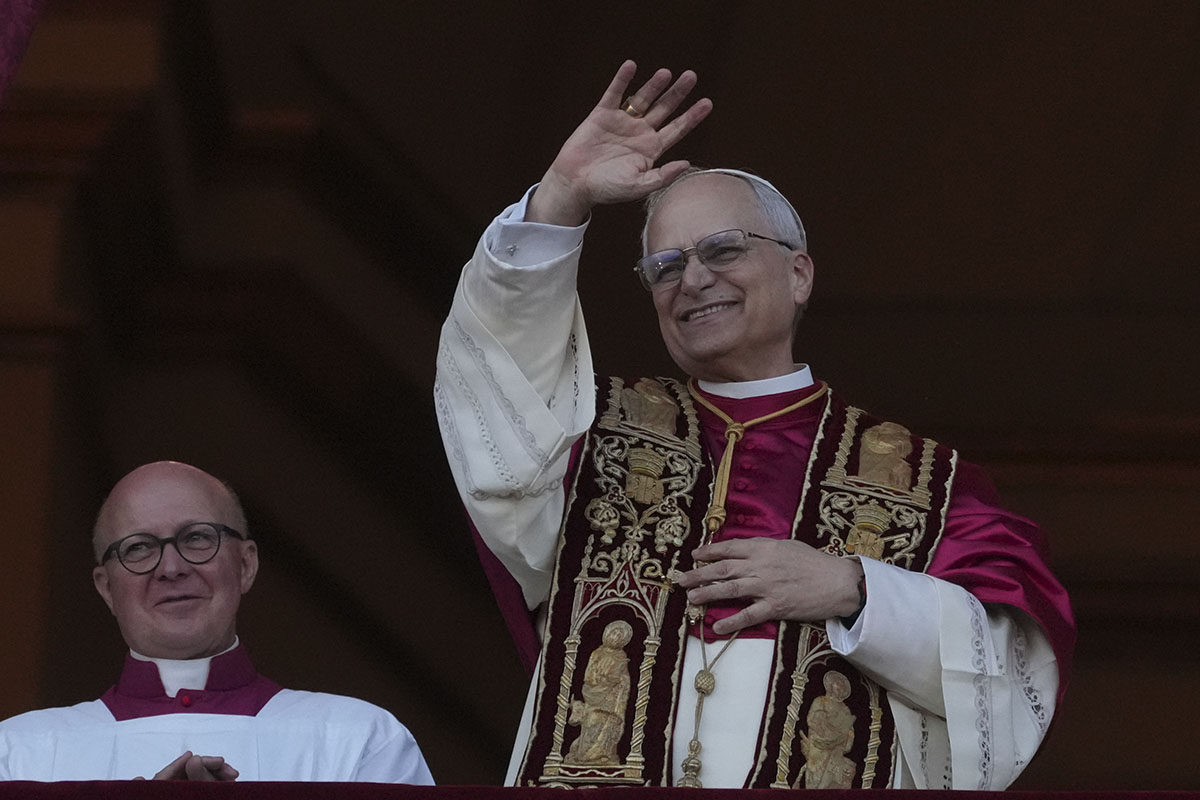By Claire Gianfrave(RNN)
In a shocking vote that caught the Catholic world by surprise, the College of Cardinals elected Robert Francis Prevost, 69, the 267th pope on May 8. He is the first United States citizen to become the bishop of Rome.
The Chicago-born Prevost has chosen to take the name Pope Leo XIV, signaling a kinship with the 19th-century Pope Leo XIII, who was known for opening the doors of the church to the world and made Catholic social teaching a central issue during his pontificate.
As he walked out of the loggia onto the balcony of St. Peter’s Basilica to greet the cheering crowd in the square below, the new pope said, “Peace be with you all!” Remembering the Easter season being celebrated in the church, he added, “I would like this greeting of peace to reach all people, in the entire world.”
At his mention of his predecessor, Pope Francis, who died April 21, the crowd roared, and the new pope reminded them: “We are all in the hands of God. Hence, without fear, united hand in hand with God and with each other, we go forward. We are disciples of Christ. Christ precedes us!”
An Illinois native, he graduated from Villanova University and Catholic Theological Union but has spent much of his career outside the U.S., having served from 2015-2023 as the archbishop of Chiclayo in Peru, where he also holds citizenship.
Prevost has faced criticism from the Survivors Network of Those Abused by Priests, known as SNAP, for allegedly mishandling abuse complaints regarding priests in Chicago and Peru, but his supporters have pushed back against the allegations.
Francis brought him to Rome to serve as president of the Pontifical Commission for Latin America, as well as the head of the Dicastery for Bishops — a powerful Vatican office that vets bishops around the world. Francis elevated him to cardinal in September 2023. Two years later, Francis made him a cardinal-bishop, the highest rank among cardinals.
He has kept a low profile in Rome, making his views on hot-button issues something of a mystery. But in a rare interview with Vatican News, he painted the picture of a church leader who “must not hide behind an idea of authority that no longer makes sense today. The authority we have is to serve, to accompany priests, to be pastors and teachers.”
In that same interview, he said that prelates are often “preoccupied with teaching doctrine,” at the risk of forgetting the message of the gospels.
The quickness of his election demonstrates a unity among the cardinals who have been portrayed as a polarized group as they headed into the conclave, and in recent decades as Francis’ style produced strong reactions, especially from conservative churchmen. But in a College of Cardinals of which 80% had been elevated by Francis and inspired by his message of welcoming and inclusion, the choice of a progressive such as Prevost may have been anticipated.
Prevost himself spoke of the divisions in the church in his Vatican News interview, saying, “We bishops especially must accelerate this movement towards unity, towards communion in the church.”
Prevost may have played a role in the sidelining of U.S. Bishop Joseph Strickland, who had become notorious for his resistance to COVID-19 vaccines and sharp criticism of the pope. In 2023, Prevost met with Pope Francis and Archbishop Christophe Pierre, the papal nuncio, or ambassador, to the United States, and speculation was that the conversation centered on the process of asking for the resignation of the bishop.
Strickland, who has garnered a following among some right-wing Catholics in the U.S., told Religion News Service he would not retire voluntarily, but he was removed from his post roughly two months later.



